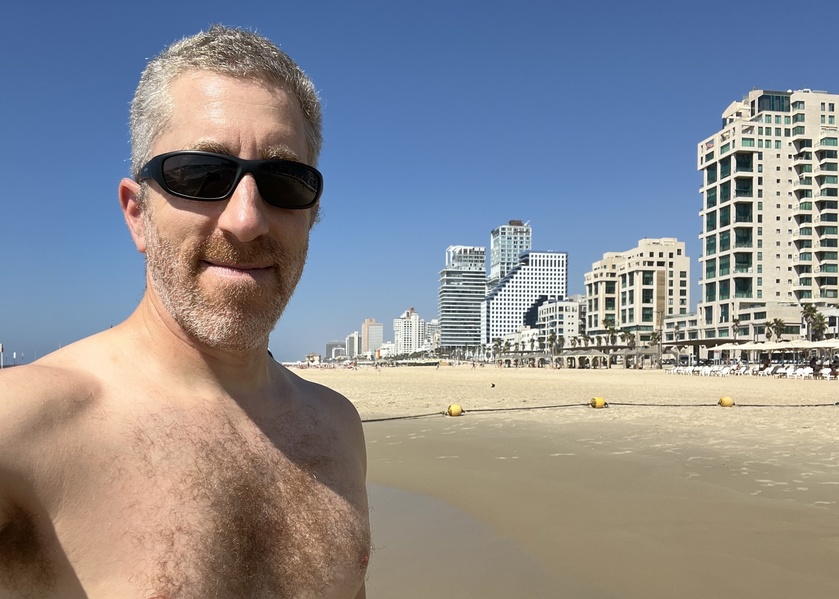Apologies for my delay the last 48 hours… it has been quite a whirlwind! Thus far we have toured Tel Aviv on the coast, and the settlement of Ariel in the interior. I have also taken the liberty of visiting the port city of Haifa for dinner last night.
A few reflections:
1. Israel is still a vibrant, dynamic, beautiful place, regardless of whatever is going on politically.
2. Tel Aviv is a wonderful mess — crowded and chaotic, but also brilliant and innovative. The new subway is incredible. The beach is, well, awesome.
3. The fault lines over Netanyahu’s judicial reform are not entirely ideological or cultural. Some on the right oppose him just because of the division it has provoked within Israeli society (familiar, perhaps, to the emotions evoked by Trump in the USA).
4. The Palestinians want jobs and the chance to earn a good living more than they want a state. If anything, attempts at peace — or struggle — have complicated their lives. Judea and Samaria are a maze of roads and boundaries and there seems no easy resolution — nor, perhaps, any urgent one.
5. Palestinians do not generally understand why Jews want to come to Israel and support Israel. To the extent that face-to-face interaction is possible, it can help break that barrier of understanding.
6. It’s good to remember that in addition to the religious connected Jews have to the land, a big reason Israel exists is because of the cultural revival that Tel Aviv represents. That Israel counts, too; it is the Israel that many on the left want to preserve, and not because of partisan politics.
This week’s portion launches the great story of Abraham, who is told to leave everything of his life behind — except his immediate family — and to leave for “the Land that I shall show you.”
There’s something interesting in the fact that Abraham is told to leave his father’s house, as if breaking away from his father’s life — but his father, in fact, began the journey, moving from Ur to Haran (in last week’s portion). His father set a positive example — why should Abraham leave him?
Some obvious answers suggest themselves — adulthood, needing to make one’s own choices, his father not going far enough, etc.
But I think there is another answer. Abraham (known for the moment as Abram) needs to establish his own household. This is not just about making one’s own choice, but really about choosing one’s own starting point. It’s starting over.
Sometimes we start over in fundamental ways even if much that surrounds us remains the same. Sometimes the journey we have to ...
The story of Noah is familiar; the details, less so.
Noah is often seen as an ambivalent figure. He was righteous -- but only for his generation. What was his deficiency?
One answer suggests itself: knowing that the world was about to be flooded, he built an Ark for the animals and for his own family -- but did not try to save anyone else or to convince them to repent and change their ways (the prophet Jonah, later, would share that reluctance).
Abraham, later, would set himself apart by arguing with God -- with the Lord Himself! -- against the destruction of Sodom and Gomorrah, saying that they should be saved if there were enough righteous people to be found (there were not).
Still, Noah was good enough -- and sometimes, that really is sufficient to save the world. We don't need heroes every time -- just ordinary decency.
Hi all -- as I noted last month, I'm going to be closing down my Locals page, at least for tips and subscriptions -- I may keep the page up and the posts as well, but I'm no longer going to be accepting any kind of payment.
Look for cancelation in the very near future. Thank you for your support!

















